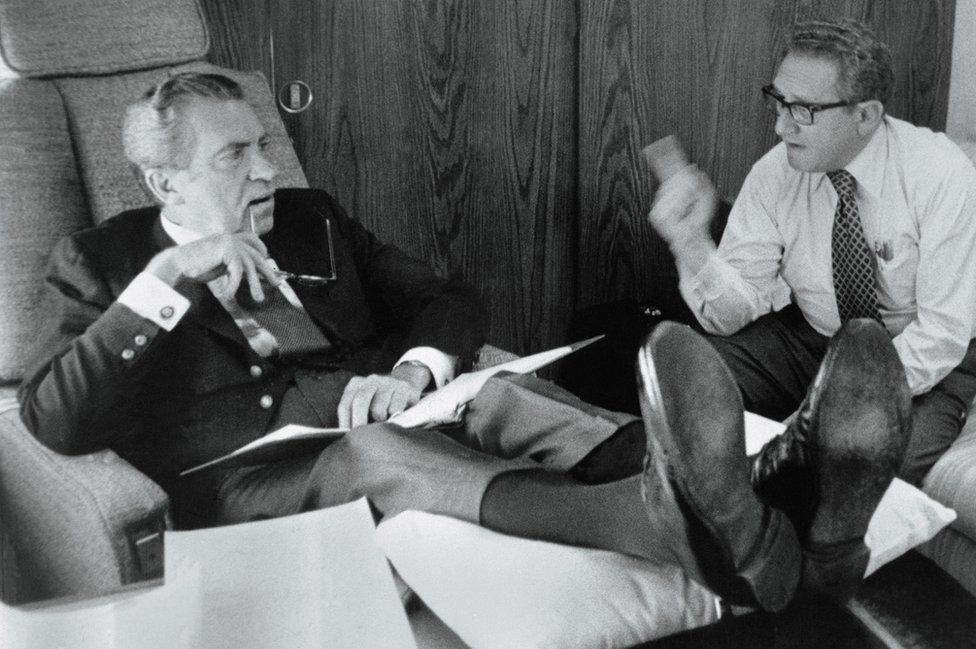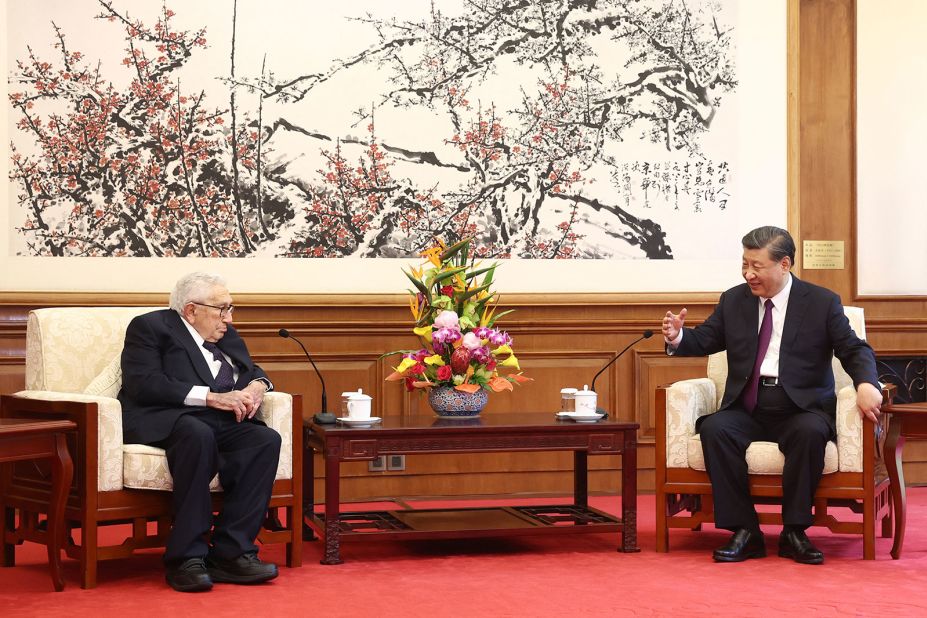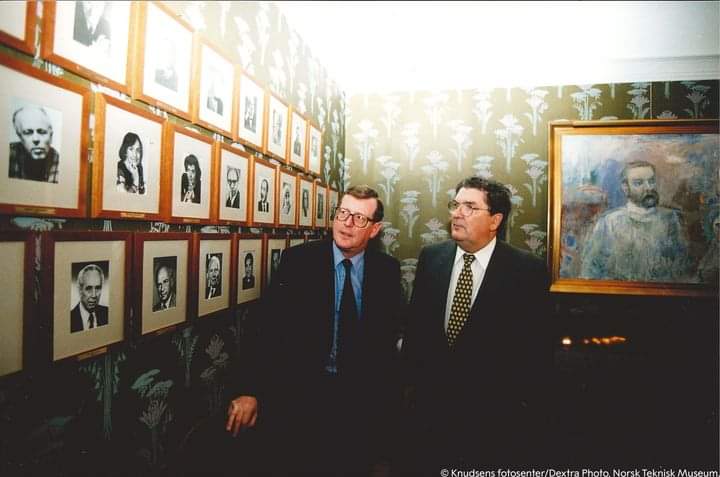Legacy of Dr. Henry Kissinger: A Century of Diplomacy and Controversy
Following the recent passing of Charlie Munger, who left us at the age of 99, the world now mourns the loss of yet another influential and inspiring figure.
Dr Henry Alfred Kissinger, who celebrated his 100th birthday, departed from this world in the comfort of his Connecticut residence.
Born in 1923, Dr Kissinger not only served as the 56th Secretary of State in the United States but was also a highly respected American scholar.
His tenure in office spanned two presidencies, working under Presidents Richard Nixon and Gerald Ford, leaving an indelible mark on U.S. foreign policy.
Dr Kissinger was also a recipient of the Nobel Peace Prize, although his accolade stirred controversy, with some regarding it as the most contentious in Nobel history.
Dr Kissinger’s Early Life in Germany & The US
Dr Kissinger entered the world in Furth, Germany, to a family of Jewish descent in 1923, during a time when nationalism was on the rise in Germany.
Despite his conservative Jewish upbringing, he had a childhood marked by restrictions, including a prohibition on watching public soccer matches. As a child, he exhibited both bookishness and competitiveness, showcasing a unique blend of traits.
In July 1932, just a year before the Holocaust began in 1933, the Nazi Party became the largest political party in the Reichstag.

In 1935, the enactment of the Nuremberg Laws had grave consequences, including his father Louis losing his job as a schoolteacher.
Fortunately, the Kissinger family managed to escape Nazi Germany and found refuge in the United States in 1938.
An Elite At Harvard with An Interest in Foreign Policy
After obtaining American citizenship in 1943, Dr Kissinger served in the 84th Army Division from 1943 to 1946, receiving the Bronze Star for his meritorious service.
Subsequently, he served in the Counter Intelligence Corps in occupied Germany and remained in the U.S. Army Reserves until 1959.
Dr Kissinger pursued his education at Harvard University, earning his bachelor’s, master’s, and PhD degrees.
He taught international relations at Harvard for nearly two decades.
Even as a graduate student, his involvement extended beyond academia, as he served as a consultant to the director of the Psychological Strategy Board in 1952 and expressed interest in working as an FBI spy.
Between 1958 and 1971, Dr Kissinger directed the Harvard Defense Studies Program and co-founded the Center for International Affairs with Robert R. Bowie in 1958, serving as its associate director.
Meeting President Nixon at a Party, and His Role as National Security Advisor
Eager to wield greater influence over U.S. foreign policy, he acted as a foreign policy advisor during Nelson Rockefeller’s presidential campaigns in 1960 and 1964.
During the 1968 Republican primaries, Dr Kissinger served as the foreign policy advisor to Rockefeller, initially viewing President-elect Nixon as the most dangerous candidate.
However, their paths would soon intertwine as he shifted his allegiance to Nixon’s campaign, expressing a willingness to do whatever it took to secure Nixon’s victory.
Upon Nixon’s inauguration in January 1969, Dr. Kissinger assumed the role of National Security Advisor, marking the beginning of his significant contributions to U.S. foreign policy.

Subsequently, he served as Secretary of State under Presidents Nixon and Ford, playing pivotal roles in the opening to China, negotiating the end of the Yom Kippur War in the Middle East, and orchestrating the conclusion of America’s involvement in the Vietnam War.
His diplomatic prowess extended to setting the former Rhodesia on the path to representative government and negotiating critical arms control agreements with the Soviet Union.
Dr Kissinger’s Pivotal Roles in Foreign Policy
Dr Kissinger was at the forefront of historic efforts to normalise relations between the United States and China, breaking decades of tension and paving the way for greater stability and prosperity for both nations.
In 1971, Dr Kissinger embarked on two secret trips to China, laying the groundwork for President Nixon’s subsequent visit to the Republic in 1972. He held the distinction of being the only American to engage with every Chinese leader from Mao to Xi Jinping.

Furthermore, Dr. Kissinger played a central role in achieving the historic détente between the United States and the Soviet Union, helping to ease Cold War tensions and envisioning a global order that prioritized peace.
His diplomatic efforts also drew the Soviet Union into a dialogue known as détente, leading to the first significant nuclear arms control agreements between the superpowers and diminishing Moscow’s influence in the Middle East through his shuttle diplomacy.
The Nobel Peace Prize Controversy
Among Dr Kissinger’s numerous accomplishments, his negotiation with Vietnam through the Paris Peace Accords stood out, earning him the Nobel Peace Prize in 1973.

He coined it “peace with honor,” but critics contended that a similar agreement could have been reached earlier, potentially saving thousands of lives.
However, within two years, North Vietnam overran the American-backed South, marking a humiliating conclusion to a conflict that Dr Kissinger had harboured doubts about winning from the outset.
Dr Kissinger’s controversies did not end there.
He faced accusations of violating international law by authorizing the secret carpet-bombing of Cambodia in 1969-70, an undeclared war on a supposedly neutral nation.
His intent was to eradicate the pro-Communist Vietcong forces operating from bases across the Cambodian border, but the bombing proved indiscriminate, causing civilian casualties in the tens of thousands.
During Pakistan’s genocidal war in East Pakistan (now Bangladesh) in 1971, he and President Nixon not only disregarded pleas from the American consulate in East Pakistan to intervene but also approved weapons shipments to Pakistan.
These actions, including the apparently illegal transfer of fighter-bombers from Jordan, had dire consequences, with at least 300,000 people killed in East Pakistan, and millions of refugees fled to India.
Heart for Peace Even Towards the End of His Life
Yet, Dr Kissinger’s passion for world peace remained undiminished.
In his later years, he cautiously embraced efforts to gradually eliminate all nuclear weapons.
At the age of 95, he began warning about the instability arising from advancements in artificial intelligence-driven weaponry, stating, “All I can do in the few years left of me is to raise these issues,” as reported by the Financial Times.
His legacy, marked by remarkable diplomatic achievements and contentious controversies, serves as a testament to his enduring impact on global affairs.




